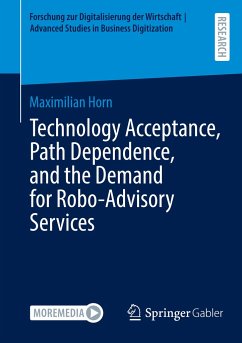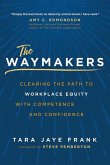This book explores the effects of the previously ignored factors of path dependence and product features on technology acceptance with a focus on robo-advice. A newly developed model introduces path dependence to technology acceptance research allowing to explain previously unaccountable effects. An empirical test of the model using data from Germany and the USA elicits that path dependence influences the attitudes towards and demand for robo-advice. A process consisting of a market survey, a choice-based conjoint analysis, and a test in a technology acceptance model allows the structured investigation of the effects of product features on the demand for robo-advice. The results show that selected product features have effects on the demand for robo-advice and that it is essential to establish these effects empirically.
Bitte wählen Sie Ihr Anliegen aus.
Rechnungen
Retourenschein anfordern
Bestellstatus
Storno








